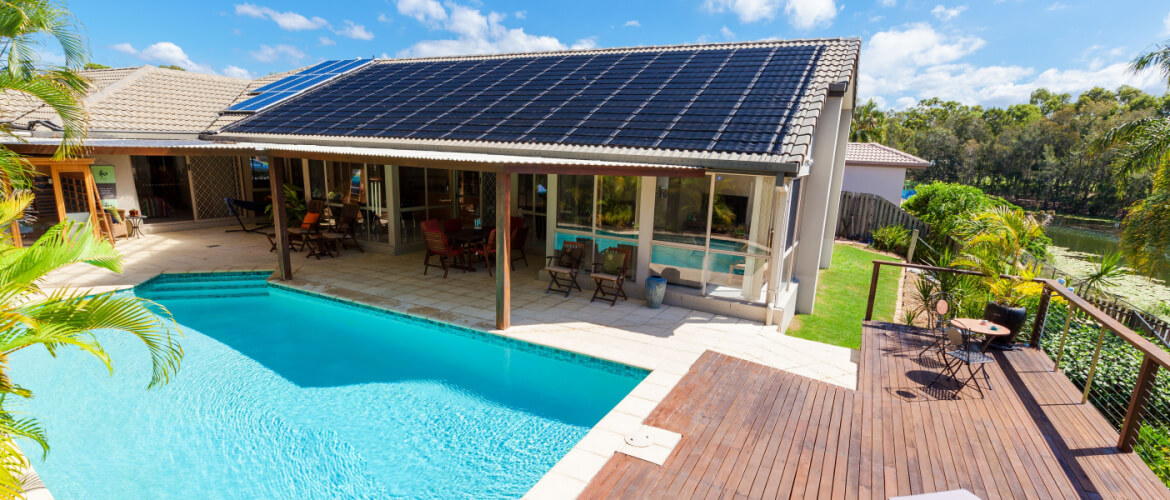Residential Solar Rooftop system
Home solar system
A home solar system must provide enough electric energy to fulfil all the power requirements of a home. It should also be capable of providing AC power as traditionally all homes use AC power to operate lighting systems, gadgets, appliances and equipment such as computers, refrigerators, mixers, fans, air conditioners, TVs and music systems

Essential elements of a home solar system
A home solar power plant comprises several elements which are as follows:
It requires the adequate number of solar panels to absorb as much solar energy as possible. When exposed to direct sunlight a typical home solar panel produces about 300 watts in one hour which means that in a normal day during summer, comprising 10 hours of sunlight, it can produce around 3000 watts or 3 kWh per day. This could vary depending on the number of hours of sunshine received during the day.
The system requires a battery which can be charged by the solar power generated and also can store electric power to be used in the night. Batteries are typically used in off-grid systems.
The system needs an inverter to convert the DC power generated to AC power so that it can be used by the appliances or devices in the home.
Cost of a home solar system
The cost of the home solar power plant depends on its size and type. There are two types of solar power plants – off-grid and grid-connected.
An off-grid system is a stand-alone system not connected to the main grid. In this system, solar energy generated is stored in batteries (known as deep cycle batteries different from the ones used in automobiles). The DC power stored in the batteries is converted into AC power by an inverter.
A grid-connected system is one which does not use batteries but only an inverter. Typically, a grid-connected system is governed by a statutory policy involving ‘net metering’ wherein the system records the excess electric power generated over and above the usage by the home that is fed to the grid. In this system, the home user need not worry too much about calculating the size of the power plant as any excess power generated earns revenue and any shortfall is made up by grid supply.
The benchmark cost of a typical 1 kW off-grid system generating 4-5 units of electric power can vary between Rs 1 lakh and 1.25 lakh. Similarly, the benchmark cost of a similar grid-connected system is generally between Rs 120000 and Rs 150000. The difference is mainly because of the cost of deep cycle batteries in the off-grid system.